Diversify financial products
That was the affirmation of experts, managers, and representatives of credit institutions at the seminar "International experience and the role of the banking system in the financial center" organized by Banking Times on April 16.
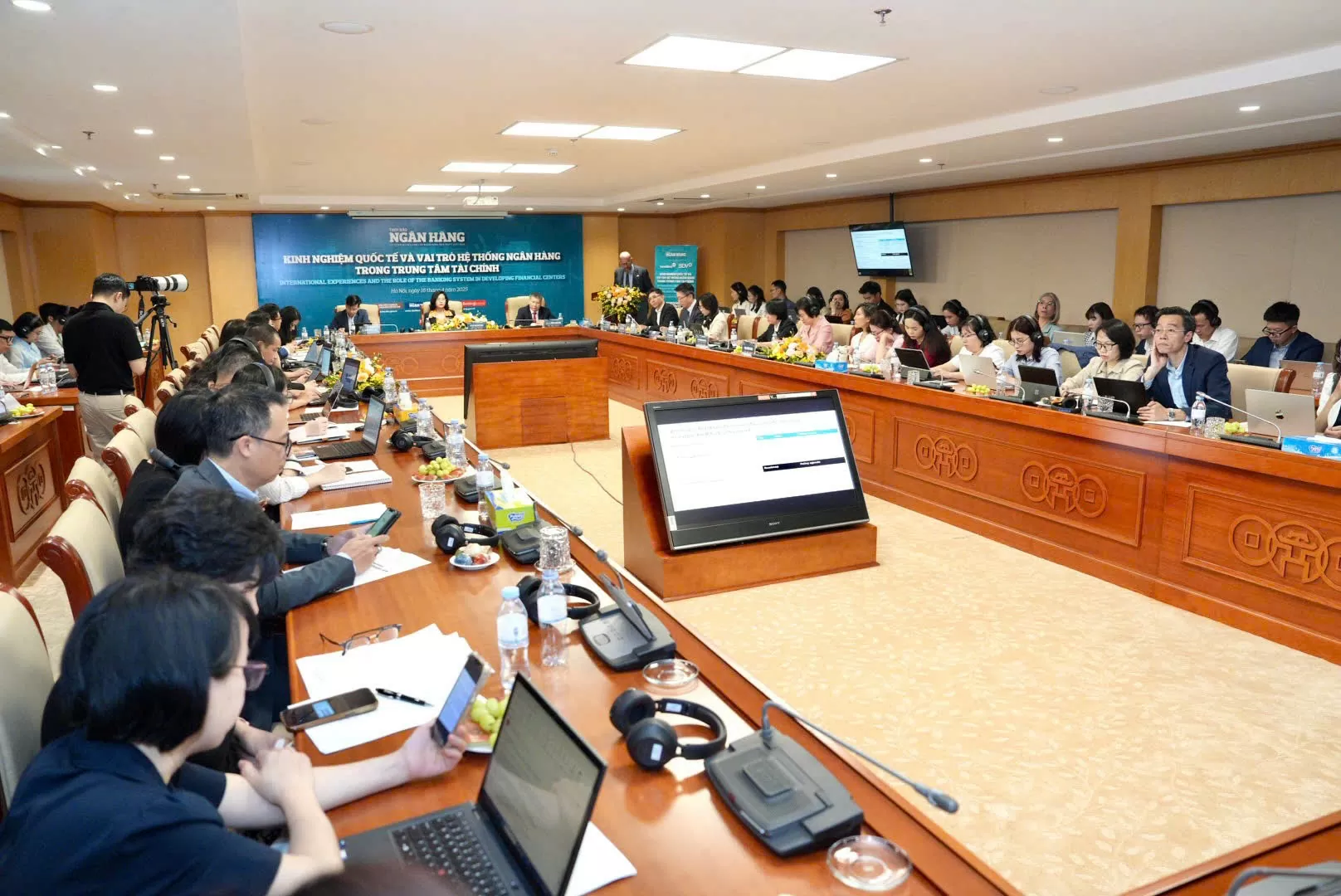 |
| Seminar “International experience and the role of the banking system in financial centers”. Photo: Hoang Giap |
Mr. Nguyen Duc Long - Director of the Department of Credit Institutions Safety, State Bank - commented that forming a financial center is "not easy" because Vietnam still has many differences in terms of institutions, scale and development level. Especially, in the current context, liberalized capital flows need to be strictly controlled to avoid causing macroeconomic imbalance.
According to Mr. Long, banking activities in the financial center will tend towards modern financial models rather than traditional banking. This requires the legal system to be constantly updated, and safety standards must follow international practices. “The State Bank is developing a new circular on capital safety ratios, towards advanced Basel II and Basel III. At the same time, it requires financial institutions to implement clear financial disclosure,” Mr. Long informed.
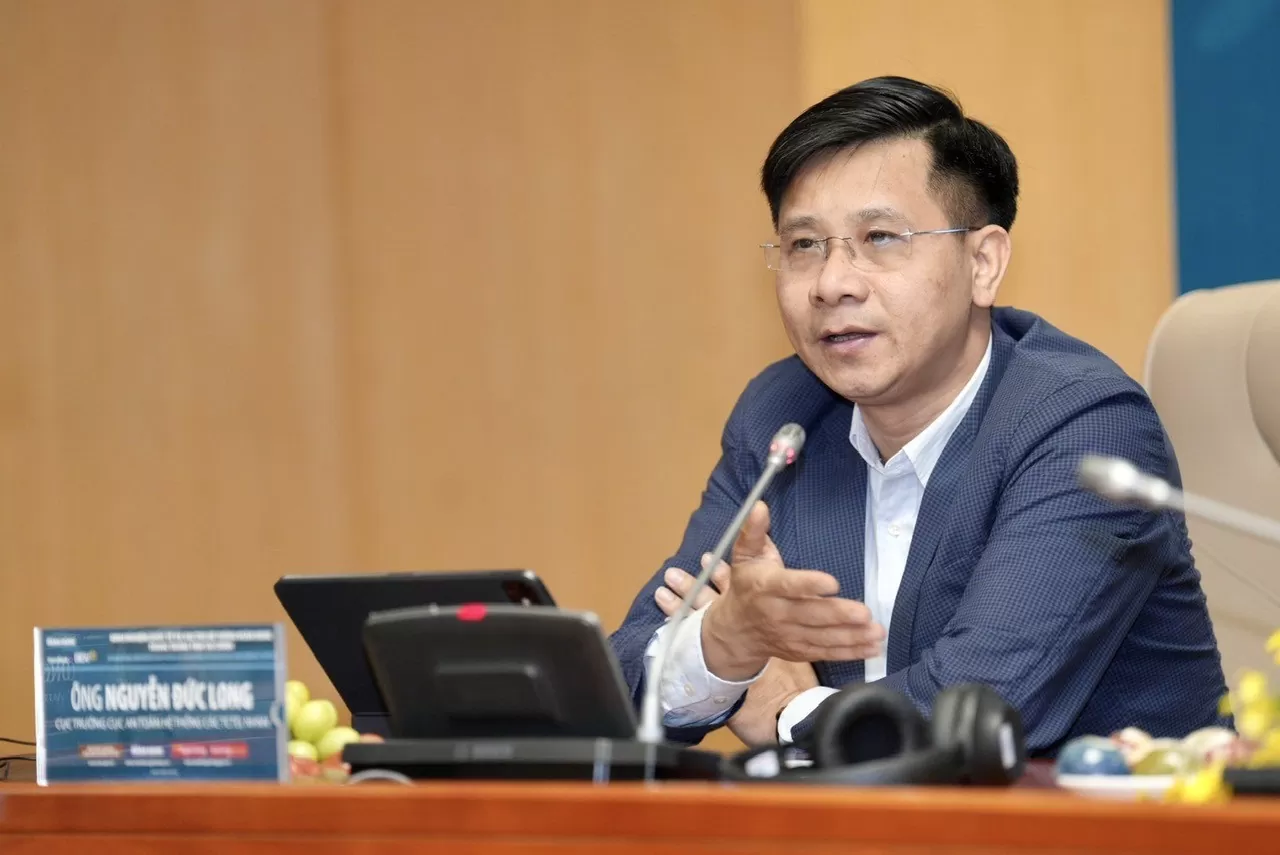 |
| Mr. Nguyen Duc Long - Director of the Department of Credit Institutions Safety, State Bank - shared at the seminar. Photo: Hoang Giap |
From the reality of commercial banks, Mr. Nguyen Manh Khoi - Head of Capital Business Department, Vietnam Joint Stock Commercial Bank for Industry and Trade (VietinBank) - said that in order for the financial market to be attractive enough for international investors, Vietnam needs to diversify financial products. Currently, derivative products and risk prevention tools are still in their infancy, while they are essential tools in major financial centers.
According to a representative of VietinBank, it is necessary to promote new markets such as goods, digital assets, foreign currencies, etc., in which priority is given to Vietnamese products with strengths such as rice. This will not only help deepen the financial market, but also contribute to creating a transparent legal corridor for businesses and investors to operate with peace of mind.
Meanwhile, a representative of a foreign bank, Mr. Ryu Je Eun - Deputy General Director of Shinhan Bank Vietnam - said that the stability and transparency of the banking system is a key factor in attracting foreign investment capital. Foreign banks also play a special role in building and operating an effective international financial institution (IFC).
Mr. Ryu Je Eun - said that Shinhan Bank has provided significant financial support to Korean enterprises so that they can operate effectively in Vietnam. Not only providing capital for enterprises in Vietnam, the bank also takes advantage of its international network with branches in 20 countries to support Vietnamese enterprises operating in Korea, Hong Kong (China) and many other markets.
“IFC is built on a foundation of transparent regulations and the participation of financial institutions to facilitate investment flows. Through this, we not only provide financial support to companies in the manufacturing sector, but also contribute to the development of startups, creative industries and the financial technology (Fintech) sector,” Mr. Ryu Je Eun emphasized.
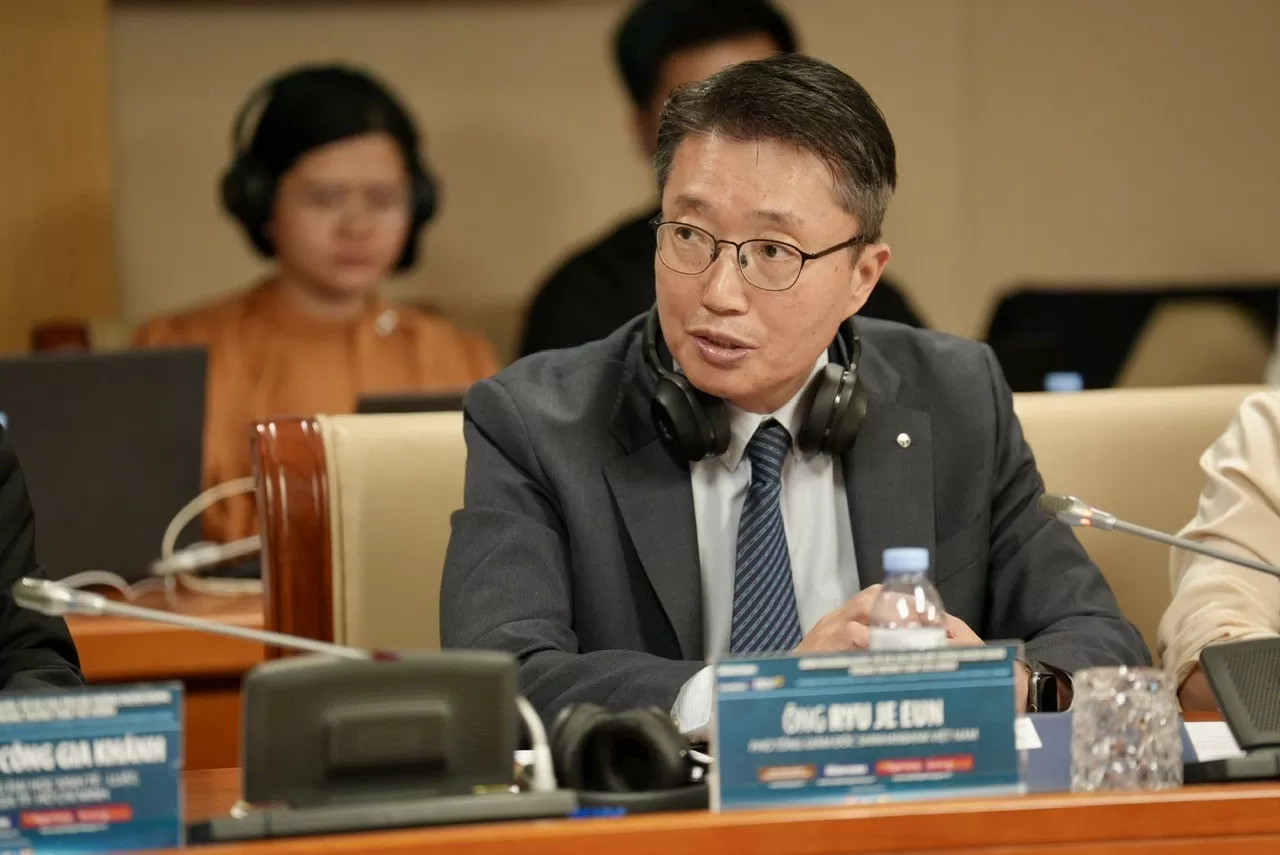 |
| Mr. Ryu Je Eun - Deputy General Director of Shinhan Bank Vietnam - speaking. Photo: Hoang Giap |
Proof is not a FATF “blind spot”
From the perspective of international experience, Mr. Richard D. McClellan - an economist and independent consultant specializing in economic policy, financial sector development and investment strategy - said that building an international financial center is one of the major decisions to promote institutional reform, free up resources, improve competitiveness and integrate into international finance for Vietnam.
“Fierce competition from regional rivals such as Jakarta, Kuala Lumpur and Bangkok, along with the risk of falling into the middle-income trap, requires Vietnam to act quickly. Delays will not only affect Vietnam’s ability to attract future investment, but also threaten Vietnam’s long-term growth foundation,” warned Mr. Richard D. McClellan.
According to this expert, establishing an international financial center is not a matter of whether or not to do it, but rather a matter of necessity. However, capital will not naturally flow in when Vietnam announces the establishment of an international financial center. In order for investors to pour capital into Vietnam, a lot of work needs to be done.
Accordingly, Vietnam should consider compliance with the Financial Action Task Force (FATF) recommendations on anti-money laundering (AML) and counter-terrorism financing (CFT) as a top priority. This is a fundamental step to avoid being put on the special monitoring list, as well as to create confidence with international investors.
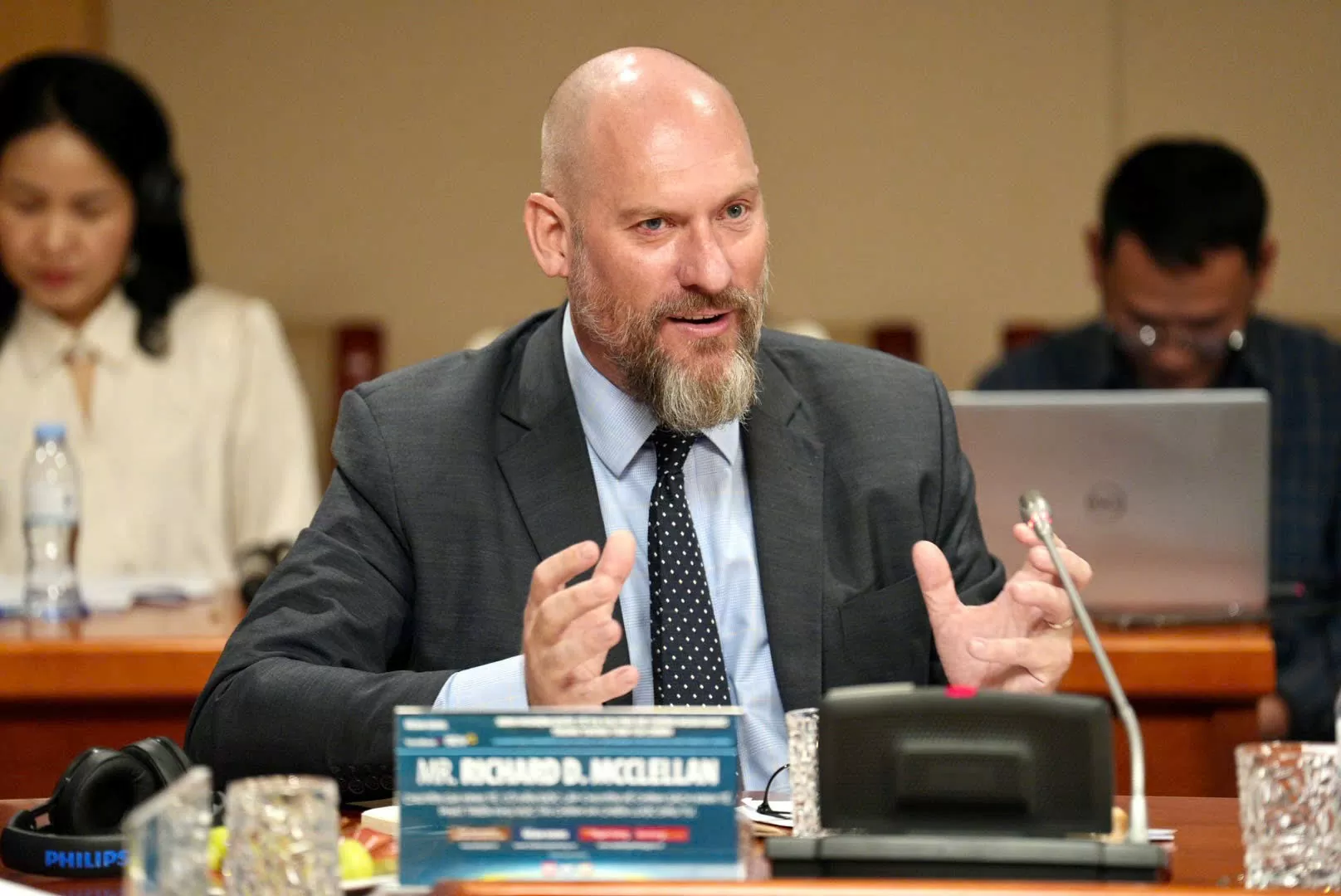 |
| Mr. Richard D. McClellan - economist, independent consultant specializing in economic policy, financial sector development and investment strategy shared. Photo: Hoang Giap |
As the regulatory body for banking activities in the financial center, the State Bank needs to play a leading role in establishing a roadmap for compliance with FATF recommendations, ensuring that sandbox regulations are consistent with AML/CFT standards from the very beginning.
It is important for the SBV to proactively and clearly communicate its compliance progress to the international market to build trust and attract investment. The SBV needs to design transparent and secure capital movement mechanisms that can be implemented in phases, while ensuring close monitoring of AML/CFT activities to avoid the risk of being placed on the FATF grey list. Developing a legal framework for digital finance, including sandbox regulations for fintech, crypto-assets and cryptocurrencies, as well as applying Basel III-compliant prudential standards, is necessary to create a safe and effective operating environment for IFC.
“It is necessary to proactively build a transparent capital movement mechanism and gradually apply the sandbox model for financial technology, cryptocurrencies, and crypto assets. At the same time, it is necessary to perfect the risk monitoring system and issue synchronous financial standards according to Basel III to create a safe and attractive operating environment for global financial institutions,” Mr. Richard D. McClellan recommended.
| Vietnam’s roadmap for developing an international financial center is divided into three phases: Phase 1 (2025-2030) focuses on establishing pilot governance and incentives. Phase 2 (2030-2035) upgrading the legal framework and scaling up financial technology. Phase 3 (after 2035) global integration, developing IFC courts and leading in the digital asset sector. Vietnam pursues a blended reform model, based on a step-by-step approach and close coordination between the State Bank of Vietnam and the Ministry of Finance. |
Source: https://congthuong.vn/dong-von-khong-ao-chay-chi-bang-lap-trung-tam-tai-chinh-383405.html



![[Photo] President Luong Cuong awarded the title "Heroic City" to Hai Phong city](https://vphoto.vietnam.vn/thumb/1200x675/vietnam/resource/IMAGE/2025/5/13/d1921aa358994c0f97435a490b3d5065)
![[Photo] President Luong Cuong attends the inauguration of the international container port in Hai Phong](https://vphoto.vietnam.vn/thumb/1200x675/vietnam/resource/IMAGE/2025/5/13/9544c01a03e241fdadb6f9708e1c0b65)

![[Photo] Many people in Hanoi welcome Buddha's relics to Quan Su Pagoda](https://vphoto.vietnam.vn/thumb/1200x675/vietnam/resource/IMAGE/2025/5/13/3e93a7303e1d4d98b6a65e64be57e870)
![[Photo] Prime Minister Pham Minh Chinh receives Ambassador of the French Republic to Vietnam Olivier Brochet](https://vphoto.vietnam.vn/thumb/1200x675/vietnam/resource/IMAGE/2025/5/13/f5441496fa4a456abf47c8c747d2fe92)










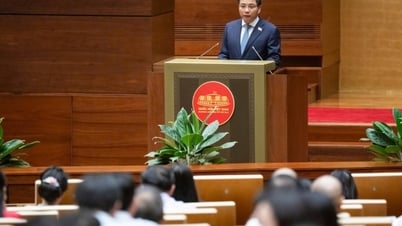









































































Comment (0)